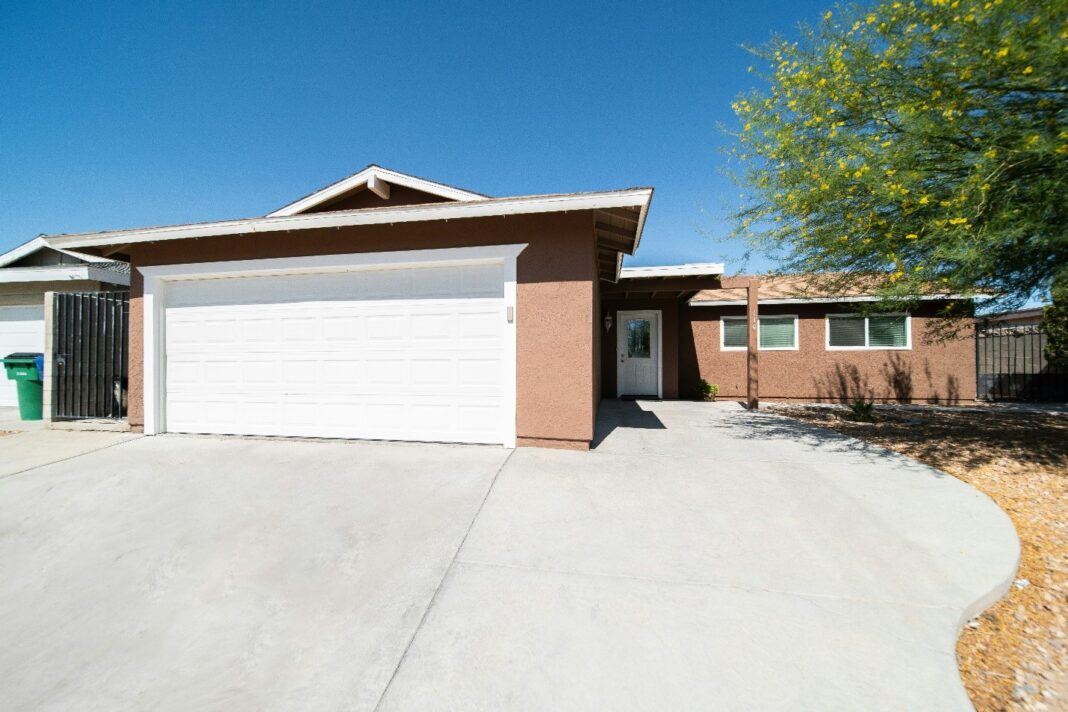When many homeowners think about a driveway, they’re likely only thinking about the concrete/asphalt areas where they will park. However, a driveway is much more than a parking area; it will be one of the first things people notice when visiting your home or even driving by. Thus, a driveway will likely be a visitor’s first impression of your house, and it is in the best interest of a homeowner to ensure they take care of it.
Maintaining your driveway can increase the longevity of the material, improve the curb appeal of your home, and help you avoid any unwarranted and expensive future repairs. If the maintenance routine is done properly, you can keep your driveway looking clean, smooth, and well maintained for years to come. It’s more pleasant to use a clean, neat, and maintained driveway and it will lower concerns of safety from tripping hazards.
Cleaning Your Driveway
Regular cleaning is the first important step to preserving your driveway. Stains, dirt, and debris do not only look ugly, but they can cause permanent damage if left to blemish your driveway for too long. The more often you remove dirt, debris, stains or any other material that could deteriorate the driveway, the better your driveway will be maintained.
Check this link at https://www.idealhome.co.uk/garden/garden-advice/how-to-clean-paving-slabs for more helpful tips.
Here are some methods to keep up on the cleaning of your driveway:
- Sweep or blow off leaves and debris off the driveway at least once per week.
- Clean oil stains or any chemical spills as soon as possible with a detergent or cleaner that is designed for driveways.
- Occasionally pressure wash your driveway to remove dirt and restore the surface against dirt and stains.
Most importantly, a clean driveway will allow you to spot early signs of damage, such as simple hairline cracks, or normal pooling where water builds up. Fixing these issues as they appear will pay off immensely in their longevity down the road. It is the simplest and easiest habit to adopt, but will be one of the most effective processes in keeping asphalt and concrete driveways intact for many years.
When to Sealcoat
Sealcoating puts a protective barrier on your driveway, helping to block moisture, sun, and the daily beating up that it takes through use. Without sealcoating, asphalt surfaces will become brittle and crack. Generally speaking, every two to three years is a reasonable amount of time for service based on usage and climate in your area.
If it has been a few years since you sealed your driveway, you may want to reach out to a local contractor. For example, homeowners may consider a contractor for driveway paving Vacaville services, which offers both professional sealing work and repair work to extend the life of the pavement.
Another positive of sealcoating is that it slows the oxidation caused by sunlight, which causes the asphalt to become brittle over time. For analogy, think about your driveway as skin—much like sunblock protects skin, sealcoating protects asphalt surfaces from intense elements while preserving the structure of the product. It is a minor expense that can add years of life to your pavement.
Filling Cracks Early
Even if you are using preventative treatments, small cracks will develop on your driveway over time. If you do not fill those cracks, water will seep in, freeze in the winter and expand, and further damage will occur. So the sooner a crack is filled, the greater chance you have of avoiding extensive repairs later on.
Filling minor cracks is an easy application of crack filler or patch kit, while more significant issues are probably best handled with a professional asphalt repair. As with road construction projects, driveway repairs are done best prior to the damage spreading.
Seasonal Driveway Care

Different seasons of the year pose different challenges to your driveway. By modifying your care each season of the year, you’ll better protect your investment.
Here are just a few seasonal tips to consider:
- Spring/Summer: Rinse/clean off any remaining winter salt/debris and check for cracks. The heat of summer can soften asphalt or aggregate paving so avoid parking heavy equipment (e.g. trucks) on it long-term.
- Fall: Rake/remove leaves to prevent staining and get the driveway ready for sealcoating if applicable.
- Winter: Shovel snow as soon as possible and use de-icing materials that will not damage the surface of your driveway. Read more on this page.
These seasonal habits replicate the same ideas that are used when doing commercial maintenance practice to keep pavement and surfaces good no matter the weather. By performing a variety of maintenance in anticipation of upcoming shifts in weather, you will be able to confidently withstand what Mother Nature throws at you without a negative effect on your driveway’s structure.
Common Homeowner Mistakes
In a great number of cases, homeowners really reduce the life of their driveway by skipping the basic preventative operation. If you are aware of some of the mistakes to avoid, you will be able to save yourself a lot of time, money and effort.
Some examples of big mistakes made by homeowners:
- Waiting to fill cracks until substantial repairs are required.
- Using chemicals or salts to manage snow and ice that dissolve the asphalt and concrete surfaces.
- Skipping cleaning because you think it takes too much time, allowing oil and other debris to further deteriorate your surface.
Another mistake homeowners make is assuming that all driveways need the same level of maintenance. Not all asphalt paving or concrete paving companies use the same procedures, and not implementing different care is likely to create problems.
By avoiding these mistakes, you can ensure that your driveway will last long and look great. Being proactive not only saves considerable dollars, but it can also add long-term value to your home.
Final Thoughts
Caring for your driveway does not have a serious complication, but you have to be consistent with your routine. Want to ensure that your driveway is protected? Create a recurring schedule of cleaning, sealing, cracks, and seasonal changes!
With complete dedication and maintenance in a timely manner, your driveway can remain strong, reliable, and welcoming for years to follow.

